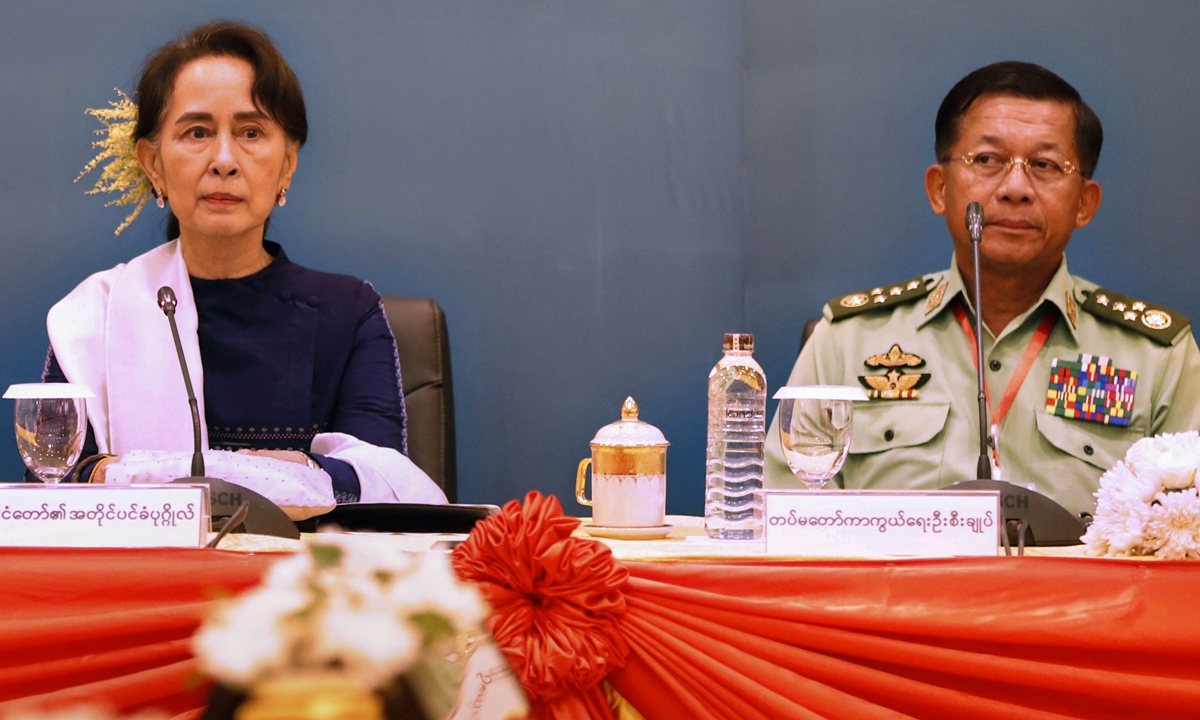
By Li Qingqing
"Myanmar could drift further away from politically free democratic nations and join the league of China" if the democracies' response to Myanmar's cabinet reshuffle closes channels with the country's powerful generals, Japanese State Minister of Defense Yasuhide Nakayama told Reuters in an interview on Tuesday. "Myanmar military's relationship with China's army will get stronger" and they will further grow distant from "free nations" including the US, Japan and the UK, Nakayama said.
Japan and some Western countries need to realize that China is not on the opposite side of the West when it comes to the Myanmar issue. China and other neighboring countries of Myanmar generally hope that all parties in the country will exercise restraint, resolve problems peacefully under the legal framework and maintain social stability. Some Western countries have expressed their strong stances on the Myanmar situation, which has increased tensions in the country.
Japan is an Asian country just like Myanmar. However, Tokyo has not considered the whole situation from an Asian perspective. It has turned to the Western camp on the matter. Regarding Myanmar's cabinet reshuffle, taking the country's peace and stability as a priority is in the common interests of all regional countries. Preventing Myanmar's situation from intensifying and not provoking any more confrontations should have been a consensus. However, some in Japan has taken the opportunity to put China and "democracies" on opposite sides.
"Putting China on the opposite side of 'politically free democratic nations' reflects Japan's Cold War mentality. Some in Japan are judging Myanmar's politics and its relations with China through tinted glasses," Xu Liping, director of the Center for Southeast Asian Studies at the Chinese Academy of Social Sciences in Beijing, told the Global Times on Wednesday. "It is impropriate to use terms like 'democracies' and 'the league of China' to describe the political changes in Myanmar. The country's politics is very complicated," Xu said.
Japan and the "politically free democratic nations" need to think about the question: Which is more important, peace and stability in Myanmar, or forcibly promoting the democratic system and engaging in a global competition of models and systems?
"The military takeover does not mean joining 'the league of China.' These so-called democracies have never considered the issue from the perspective of Myanmar. They only care about their own interests," Xu said.
Not many national governance models exist in the world. Small and medium-sized countries in particular have very few choices as the "politically free democratic nations" are proactively promoting their models. The room for innovation in political systems for small countries is even smaller.
And when there are conflicts between the Western electoral system and Myanmar's national conditions, these democratic nations have not considered the country's domestic situation or the local political and historical factors. In particular, as an Asian country, Japan's mentality is based on Western countries' interests and even took the opportunity to lash at China.
When it comes to peace and stability in Myanmar, it is not important whether Myanmar will "grow further away from politically free democratic nations." What is important is whether Myanmar can finally achieve long-term political stability and ensure that its people have a peaceful and stable life. Japan and some other "democracies" only want to expand the area dominated by the West. Selfishly, they do not respect the national conditions of small and medium-sized countries.













